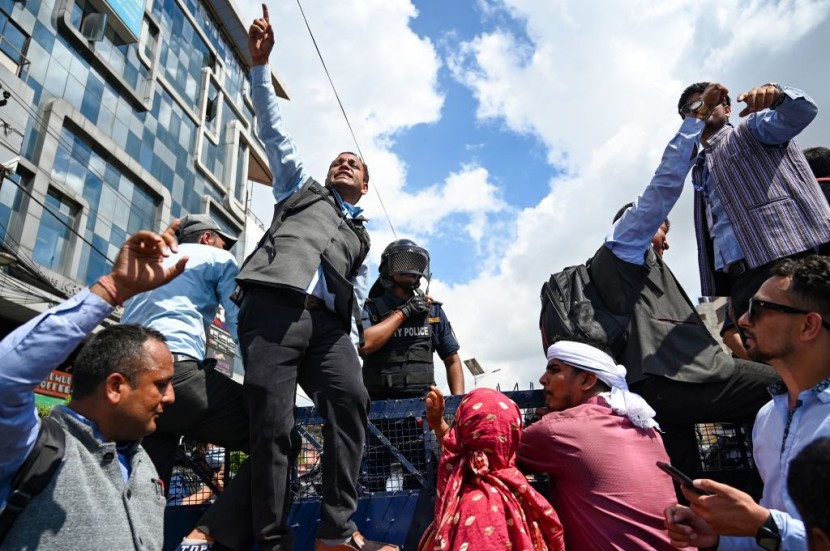
The huge teachers' strike in Nepal is now on its third day, affecting millions of students throughout the country.
A measure to restructure the educational system is being opposed by around 110,000 educators in Nepal. They oppose efforts to place more power in the hands of municipal governments and a prohibition on teachers' participation in political organizations.
Schools Forced to Cancel Classes
Many people took to the streets of Kathmandu on Thursday, September 21, heading in the direction of the parliament building. As the demonstrators sought to break beyond the steel wall, the anti-riot police pushed back with their sticks.
According to ABC News, the protest has resulted in the closure of over 29,000 public schools throughout the nation. There was no closure of private schools.
Amid the protests, students and their parents have been asking that the interruptions be put to a stop so that school can go back to normal.
Preparing for national exams, 16-year-old Simran Bhatta Acharya questioned the decisions of the teachers who went on strikes.
Sabitri Acharya, Simran's mom, claimed she had been out of the office for a few days to take care of her. "How long can I do that? Teachers should fight for their rights without taking away the children's right to education," she pointed out, BBC reported.
Issues Raised by Educators
The teachers are upset over a clause in the law that would prevent them from joining political organizations. Notably, educators in Nepal played a crucial role in the democratic movement. Since the country's first parliamentary elections in 1959, political parties have actively sought to recruit educators as campaigners.
However, there are many in the field of education who believe that teachers' political engagement has a negative impact on student learning and have called for a complete ban on political activities.
The educators also disagree with proposed changes that would provide local governments more control over schools.
By amending the constitution in 2015, power over public institutions, including schools and hospitals, has been transferred to municipal governments. This was in response to worries about the concentration of authority and resources in the capital of Kathmandu.
After eight years, some educators still feel that school districts are being poorly managed because local politicians lack the expertise necessary to do their jobs. However, many in Nepal favor the measure because they feel it would result in more responsible behavior on the part of the teaching professionals.
Teachers have asked the government to do a number of things, including centralizing promotion and transfer decisions in the provinces rather than in the municipalities.
In addition to increased pay, they requested the establishment of a training council and the possibility of permanent employment for instructors initially employed on a temporary basis.
The head of the Nepal Teachers' Association, Kamala Tuladhar, has complained that the government has not lived up to its agreement with teachers by addressing their problems sooner. But Purna Bahadur, Nepal's interim prime minister, has claimed that the teachers began their protests before alerting the administration of their demands.
© 2026 HNGN, All rights reserved. Do not reproduce without permission.








